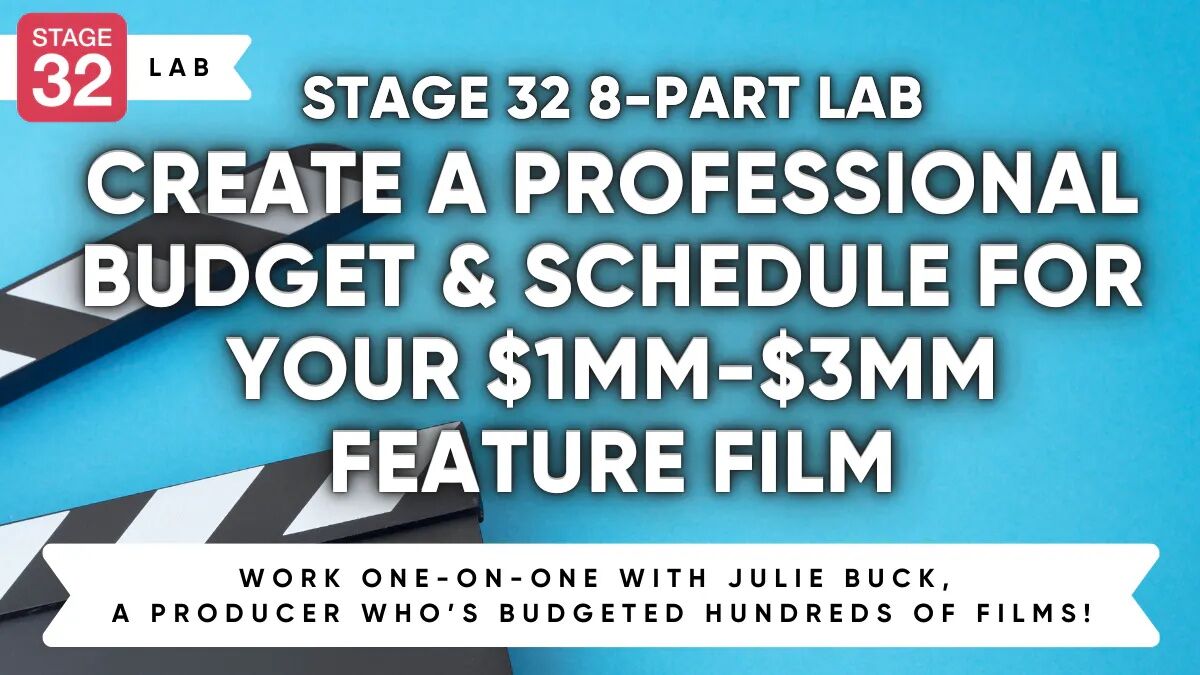So interested to see peoples views on the use of the word "the" (and also "a") in describing scenes and action. Do you use it or of belief its a waste of word space and not needed. EG "James let outs A defeatist breath and sits on THE couch vs James lets out defeatist breath and sits on couch.
Naturally people will have a view and it might be a case of no-one is right but I wonder what the percentage of writers drop these articles. I personally dont use them and no-one has ever pulled me up on it but plenty of scripts have them. As someone who spent years learning Russian, they dont have articles so they just say "man gets in car" not "The/A man gets in/into the car." So I do find my scripts having a "Russian style" in regard to dropping articles. Noting, that I keep them for dialogue or use them for a scene that may need a little help in its description if its a complex/busy scene or action.



5 people like this
I use them. I like my prose to flow as smoothly as possible. I feel a lot of efforts to gain white space can actually create an awkward read that feels longer/harder.
That said, I've always found I adjust fast to different styles as a reader and I'll always respect a fellow artist's chosen style. I'd never mark a writer down for their style.
1 person likes this
CJ Walley yeah no-ones ever said anything to me about in any coverage or other feedback. But I'd certainly change upon request if doing a rewrite. I got no issues with either way, I was curious what other writers do in this regard. But I agree, it can impact the readers flow by omitting them.
4 people like this
Readers notice grammar & formatting when they are bored on the page. So dont be boring. Simple, right? I read an actual 1st draft of "Boogie Nights"; it looked like PTA typed on a word processor, full of grammar errors and no one in the business of making movies cared. Everyone was on-board because of story execution.
2 people like this
I'm old school. I use proper grammar and spelling for almost everything unless I'm trying to make a point.
3 people like this
Sometimes I use "a" and "the" in action lines. Sometimes I don't use them. It depends on the flow of the sentence and the space on a page.
1 person likes this
Pete, I don't mind using "a," "an," and "the" in scene descriptions...my biggest worry has to do with making whatever I write believable.
2 people like this
What an interesting discussion. When English is not the first language, I can see this as a dilemma for some. I, like Mike Romoth, tend to steer towards proper grammar and spelling, especially spelling. In conversation, we never use proper grammar, though. Living in a house that boards foreign students, it's interesting to see the English they are learning, which is textbook proper, however, they have difficulty understanding conversations because native English speakers all speak slang. I love this question.
3 people like this
I will use incomplete sentences, for example leaving out the verb, if not necessary. But leave out too many articles and it just gets annoying to read.
2 people like this
Dan MaxXx Depends who reads it. I tend to notice even minor errors (except in my own writing, of course). It won't make me stop reading, but it gets tiring when your internal grammar and spell check has to work overtime.
What throws me more is when the context makes clear that the writer is simply using the wrong word. Like using 'bemused' to mean 'amused' or using 'affect' to mean 'effect' etc.
3 people like this
I'm an advocate of tight writing. I avoid adjectives and adverbs like the plague so my writing style is somewhat staccato - sometimes I use articles, sometimes not. To me, it's all about 'readability'.
7 people like this
I want my screenplays to read fast. I try avoiding words that are unnecessary. Plus, I want my screenplays to read like screenplays and not like a novel.
Screenwriting is different from other forms of writing. They have a certain cadence to them that comes from writing economically. Writing economically seems awkward at first, and it takes a lot of practice. So if a reader sees a screenplay that is overwritten, they may assume the screenwriter doesn’t have a lot of experience. So, they might jump to the conclusion that reading it would be a waste of their time.
Here are a few tips when writing action and descriptions that might help when it comes to writing more economically. These aren't rules just some suggestions.
Keep action lines to 3 lines or under 4 at the most. Keep a single event, shot or sequence within one description. Have the sentences that compose your description all related to one another and if the action suddenly changes start a new paragraph.
Don’t describe every detail in the scene. Avoid describing character’s every movement. Paint your scenes with broad strokes and let the reader’s imagination fill in the rest.
For example: Bob crouches behind the chair, dashes for the door, as opposed to Bob moves to the chair and crouches behind it. He looks left and right. He turns to the left and races out the open door.
Only write what we can see and avoid character’s thoughts. You should only write the physical manifestation of their emotions.
Make all your action immediate and in present tense. Eliminate words like "suddenly", "then", "begins to", "starts to" and just make the action happen without any sort of temporal qualifier.
For example: "Suddenly, he runs off." becomes "He runs off." "She starts to climb" becomes "She climbs." Replace the "to be" verbs with an active verb, or eliminate them entirely. For example, "She is in uniform" becomes "In uniform.” "It is dark outside" becomes “Dark ."
Avoid words that can usually be eliminated like “are”, “and”, “there”, “it is”, “it's”, “to go”, “to say”, “is”, “to be” and words ending in “ly” and “ing” and replace “and” with a coma or start a new sentence. Avoid “he” and “she” if it is redundant. For example: “She goes and gets her purse.” Just write “Gets her purse” instead.
Also, it is good idea to show the action before the character’s dialogue, so the reader might subconsciously know who will be talking next. In many instances, it will help your screenplay read faster and flow better.
In a character's dialogue you can usually eliminate first words of dialogue such as "Well", "No", "Yes", "Of course", "I mean.” Eliminate words like "hello", "goodbye", "please", "thank you", and "you're welcome" unless used for irony or emphasis.
Avoid question and answer dialogue when one character can just make a statement instead. If a character asks a question, don’t feel compelled to have the other character answer, especially when the audience will automatically assume what the answer would be.
4 people like this
Go with what sounds good and natural. But missing words which are expected can be distracting and that will take the reader out of the flow of the piece and ruin a good thing, which is counter-productive to making it concise. I use what I think are the right number of words and try to use no more in the script than necessary.
2 people like this
Some great comments here. Thanks. I guess it's that forever tight rope walk of writing in your style and your voice but also not giving the reader an excuse to put your script down in regard to grammar or formatting. And yes, some amazing scripts have made it despite the grammar quality because the story and writing is strong enough to carry it. And the reverse can be a perfectly grammar correct and formatted script but the story is just not there and no amount of perfect screenplay convention grammar and formatting can save it.
8 people like this
The good news is, there's room for everyone. You only have to look at a few highly acclaimed scripts to see just how much prose can vary from writer to writer. The important thing is to never write in fear. That's when you lose your edge. The most powerful thing you can put on the page is confidence.
5 people like this
English is very utilitarian it can be used in many ways to solve many problems. Great writing isn’t a set of rules. It is in the execution of tool, which english is just one. To say that something cannot be used outright is a demonstration of the misunderstanding of art.
An artist uses the tools at hand to the best of their craft.
There was a limerick I heard as a child. Here is the first line.
“The boy stood on the burning deck picking his nose like mad..”
This could be
“Boy picked his nose and the deck which burned beneath his feet..”
Which one works better as a limerick.
3 people like this
You don't have the same writing space as if you were writing a book but the spelling and grammar still need to be correct. Readers read a lot (understandably) so if it looks like you are submitting unfinished notes that doesn't flow well this can turn into a major distraction when reading. You are better off carefully choosing the words when describing something rather than using poor grammar.
1 person likes this
I too prefer to leave out (the) articles whenever possible in (the) action descriptions, and also like to use phrases in place of complete sentences when there's no loss of clarity. If "James" very clearly was the prior focal point, I might change from / to:
From: James let outs a defeatist breath and sits on the couch.
To: Defeatist exhale. Sits on couch.
Alternatively, to keep the reader's eyes moving down the page as fast as possible, consider:
Defeatist exhale.
Sits on couch.
Visually, for a reader, the last approach creates maximum white space, which subconsciously (?) tells the reader it will be a quick and easy read.
3 people like this
These are suggestions, not rules.
1 person likes this
Doug Nelson Having read one of your scripts, I didn't find the style staccato, nor distracting. Tight yes, but it read smoothly.